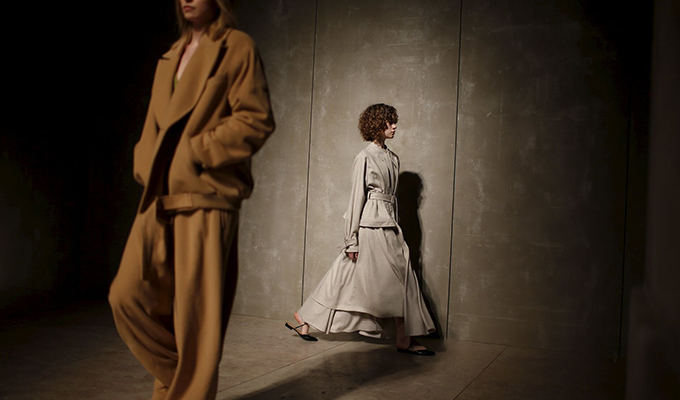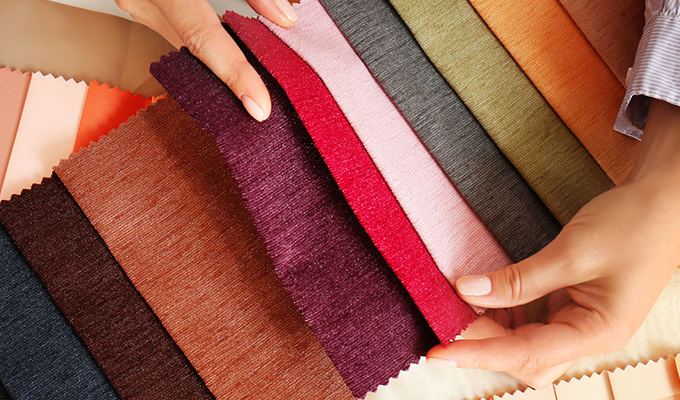

In the intricate world of textile manufacturing, the creation of a three-dimensional surface without the need for additional embroidery or weaving complexity is achieved through the production of Embo...
The fundamental essence of the textile industry lies in the interlacing of yarns, a process that produces the versatile and durable Woven Fabric. But what makes this construction so enduring across ce...
As global fashion pivots towards tactile complexity and functional elegance, Jacquard knit fabrics have emerged as the premier choice for high-end apparel engineering. This report analyzes the technic...
In the diverse landscape of textile production, Knitted Fabric has emerged as a cornerstone material for manufacturers seeking a balance between flexibility, comfort, and durability. Unlike woven mate...
As a deep participant in the global textile supply chain, Woven Fabric has always stood at the forefront of fabric technology. In today's increasingly complex global supply chain, where brand requirem...
In the intricate world of textile engineering, the tactile quality and structural integrity of a material define its utility in the fashion industry. Among the most sophisticated weaves available toda...
Polyester Woven Fabric refers to the type of fabric woven using Polyester as raw material and woven through warp and weft interwoven process. Polyester is a synthetic fiber with excellent physical stability, wear resistance and wrinkle resistance. Compared with knitted fabrics, the woven structure is tighter and crisper, and the finished fabric is high in strength and durability. It is widely used in many fields such as clothing, luggage, home textiles, and outdoor products.
1. High strength and good wear resistance
The reason why Polyester fibers can occupy an important position in the global textile market is largely due to its excellent mechanical properties. Especially in terms of strength and wear resistance, polyester woven fabrics far exceed many natural fibers and become the first choice material in the industrial, outdoor and functional fields.
Why do polyester woven fabrics have high strength?
The raw materials themselves have high tensile properties: polyester fibers have a polymeric structure and have strong cohesion between the molecular chains, which makes the fibers breaking strength high. The strength of its dry and wet states is almost unchanged, which means that stable performance can be maintained even in humid environments.
The woven structure is stable and tight: Compared with knitting, woven fabrics are made of vertical interwoven warp and weft yarns, which have a tighter structure and stronger tensile resistance. With the strong polyester silk, the fabric made of fabrics is still not easily damaged, deformed or tear after long-term pulling, loading, friction, etc.
Why is polyester outstanding wear resistance?
The polyester fiber has a smooth surface and a small friction coefficient between the yarns, so it has strong friction resistance;
Under repeated use, frequent washing, high-frequency contact with rough objects, etc., the integrity of the fabric surface can still be maintained and it is not easy to blem or pill;
The ester bonds in its molecular structure are stable, have good resistance to external physical losses, and have a significantly longer service life.
2. Anti-wrinkle-free and easy to handle
The resilience of Polyester fabrics, also known as wrinkle resistance or flexural resistance, is one of its core advantages that distinguishes them from natural fibers (such as cotton, linen, silk). This characteristic is mainly due to the stability of the molecular structure of polyester fibers and its excellent elastic recovery ability.
Why is polyester not easy to wrinkle?
The polyester molecular chains are closely arranged and have high orientation, and have a certain crystallinity, so that they can quickly return to their original state after being compressed, squeezed or bent by external forces;
The fiber has a high elastic recovery rate, and even after repeated folding, wearing and washing, the surface of the fabric can remain flat, crisp and not easily deformed;
In woven structures, the polyester yarn itself is strongly rigid and has sufficient tension on the cloth surface, so it is not easy to wrinkle even under denser structures.
3. Low hygroscopicity and rapid drying
The moisture absorption rate of polyester fibers is generally less than 1%, far lower than that of natural fibers such as cotton and viscose. This means that moisture does not easily retention between the fibers or penetrate into the fibers, and will only stay on the surface. Therefore, once the moisture evaporates, the cloth surface can quickly return to dryness.
This quick-drying feature makes polyester fabrics particularly outstanding in high-intensity exercise or outdoor environments, and can quickly discharge sweat or rain, keep the wearer's body dry and comfortable, and reduce the sticky feeling caused by moisture or the risk of body surface cooling.
After hydrophilic finishing or composite processing with absorbent fibers, polyester woven fabrics can further improve moisture-absorbing and sweating performance, taking into account quick drying and comfort, and become the main material for functional clothing such as sportswear, mountaineering suits, quick drying clothes, swimwear, yoga clothes, etc.
4. Strong heat resistance and chemical resistance
Polyester fiber has good thermal stability, with a melting point of about 255℃, and will not melt, deformation or physical properties change when exposed to high temperature environment for a short period of time. At the same time, it has excellent light stability and is not prone to aging, fading or brittlement under long-term direct sunlight, which is far better than general natural fibers or low-grade synthetic fibers.
More importantly, polyester has strong resistance to most inorganic acids, alkalis, salt chemicals, oils and solvents, and is not easily corroded or eroded. It is especially suitable for industrial environments that need to be anti-pollution, oil stain or corrosion resistant.
Polyester Woven Fabric plays a key role in many outdoor and engineering uses, such as sunshade cloth, tarpaulin, sunscreen curtain, building fence cloth, safety reflective vest, fireproof fabric (with special treatment), etc., and has become an indispensable high-performance cloth material for municipal engineering, field operations, transportation facilities and other industries.
5. Moderately priced and suitable for mass production
Compared with natural fibers, polyester fabrics have more controllable costs and stable performance, which are suitable for industrialized and large-scale rapid production, which helps reduce manufacturing costs and enhance overall market competitiveness.
1. Yarn preparation
Different specifications of polyester filaments or staple fiber yarns are used as raw materials, and the thickness and twist of the yarn are determined according to the use of the fabric. Polyester raw materials can be pretreated by elasticization, dyeing, antistatic treatment, etc. to improve the quality of subsequent weaving.
2. Weaving process
The basic structure of the fabric is constructed through automated looms such as water jets, jets, and rapiers. The weaving density, organization method and yarn arrangement will directly affect the feel and functional performance of the finished product.
3. Post-treatment process
After weaving, it usually needs to go through molding, dyeing, coating, calendering, composite, and velvet processes to improve the aesthetics and functionality of the fabric. For example, silver-coated sunscreen treatment, PVC coating waterproof treatment, etc., make the fabric meet the needs of different scenarios.
Clothing field: Suitable for the production of various casual clothes, sportswear, suits, shirts, workwear, sun protection clothes, etc., especially in clothing that has requirements for clarity and wrinkle resistance.
Bags and Shoes and Hats: Polyester Woven Fabric has strong wear resistance and tensile resistance. It is a common material for backpacks, suitcases, computer bags, upper materials and other products. It is especially suitable for large-scale OEM/ODM manufacturing.
Home and curtains: After special cleaning, you can make blackout curtains, sofas, tablecloths, pillow jackets and other home soft furnishing products, which can increase the touch and appearance while keeping the fabric firm.
Outdoor and industrial use: It can be used to produce functional cloths such as tents, parasols, rain ponchos, protective clothing, engineering fences, advertising cloths, etc., and has multiple properties such as ultraviolet rays, waterproof, and fireproof.